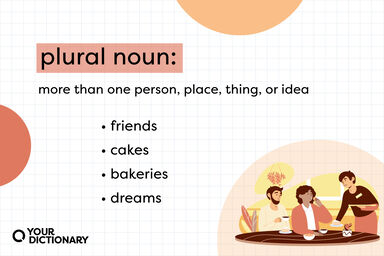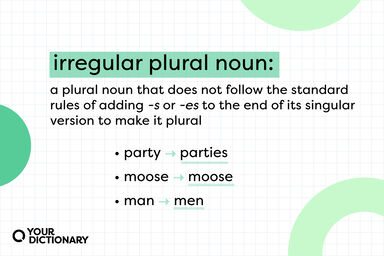Plural Definition
plo͝orəl
plurals
adjective
Relating to or composed of more than one member, set, or kind.
The plural meanings of a text; a plural society.
American Heritage
Of, including, or consisting of more than one; specif., heterogeneous.
A plural society.
Webster's New World
Designating or of marriage among three or more persons.
Webster's New World
Designating or of the category of number that refers to more than one person or thing, or in languages having dual number, more than two.
Webster's New World
(comparable) Pluralistic.
Wiktionary
Antonyms:
noun
plurals
The plural number.
Webster's New World
The plural form of a word.
Webster's New World
A word in plural form.
Webster's New World
Synonyms:
- plural form
Antonyms:
Other Word Forms of Plural
Noun
Singular:
pluralPlural:
pluralsOrigin of Plural
-
From Middle English plurelle, from Old French plurel (“plural"), from Latin pluralis (“of or belonging to more than one, belonging to many", adjective), from plus, pluris (“more") + -alis.
From Wiktionary
-
Middle English plurel from Old French from Latin plūrālis from plūs plūr- more pelə-1 in Indo-European roots
From American Heritage Dictionary of the English Language, 5th Edition
Related Articles
Plural Is Also Mentioned In
Find Similar Words
Find similar words to plural using the buttons below.





